Other

“A simple yet effective design, coupled with remarkable durability and low cost, make this robotic gripper a promising option for many industries Soft robotic grippers could greatly increase productivity in many fields. However, currently existing designs are overly complex and …

“Researchers compensated the attenuation of higher-frequency components of bone-conducted speech signals during their transmission Bone-conduction (BC) headphones degrade the word intelligibility of BC speech, especially under noisy conditions. Researchers recently explored two methods - first and higher-order high-frequency emphasis - for improving …
News Commenced Commercialization of a Biosensor That Uses a Solid-Electrolyte Thin-Film Transistor - Simultaneous Detection of Multiple Nucleic Acids and Pathogens in a Short Time

“Mitsubishi Materials Corporation together with Professor Yuzuru Takamura and Assistant Professor Daisuke Hirose of the Bioscience, Biotechnology, and Biomedical Engineering Research Area at Japan Advanced Institute of Science and Technology (Nomi City, Ishikawa Prefecture) have developed a biosensor that uses …
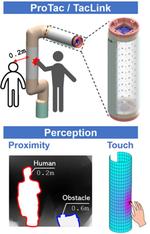
“Researchers developed an innovative robotic link with multimodal perception to help make human-robot interactions safer and more convenient To make human-robot interactions safer and more fruitful, robots should be capable of sensing their environment. In a recent study, researchers from …

“Scientists devise a simple one-click system that can remove the biases commonly found in AI training datasets Deep neural networks (DNNs) that enable AI are often trained on datasets, but this can create problems as many datasets have co-occurrence biases …
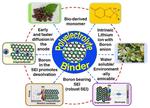
“Researchers show that inherent lithium ions in bioderived borate polymer enhance ‘extreme fast charging’ capability in graphite anodes Lithium-ion batteries dominate among energy storage devices and are the battery of choice for the electric vehicle industry. Improving battery performance is …
News Finding Hidden Regularities in Nature: JAIST Researchers Apply Deep Learning to X-Ray Diffraction
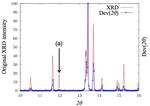
“The auto-encoder technique uses a neural network to facilitate the discovery of hidden features of materials that cannot be easily recognized by humans X-ray diffraction (XRD) is an essential technique to identify the structures and compositions of newly developed materials …
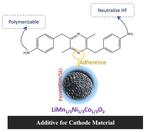
“A microbially prepared pyrazine diamine compound significantly stabilizes high-energy density lithium-ion batteries, shows a new study by researchers from Japan Lithium-ion batteries with high-energy-density cathodes are necessary to meet the energy demands of next-generation electronics and electric vehicles. At high …
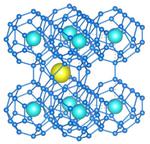
“Researchers reveal new crystal structures of hydride compounds showing high-temperature superconductivity using data science and supercomputer simulations High-temperature superconductors have been a point of interest over the past decade. Ternary hydrides composed of lanthanum and yttrium have exhibited superconductivity at …

“Researchers decode the complex ordering of fluorine atoms in lead titanium oxyfluoride using computational and experimental techniques A variety of material properties can be realized by a composite anion technology in which a part of the oxygen in the oxide …

